
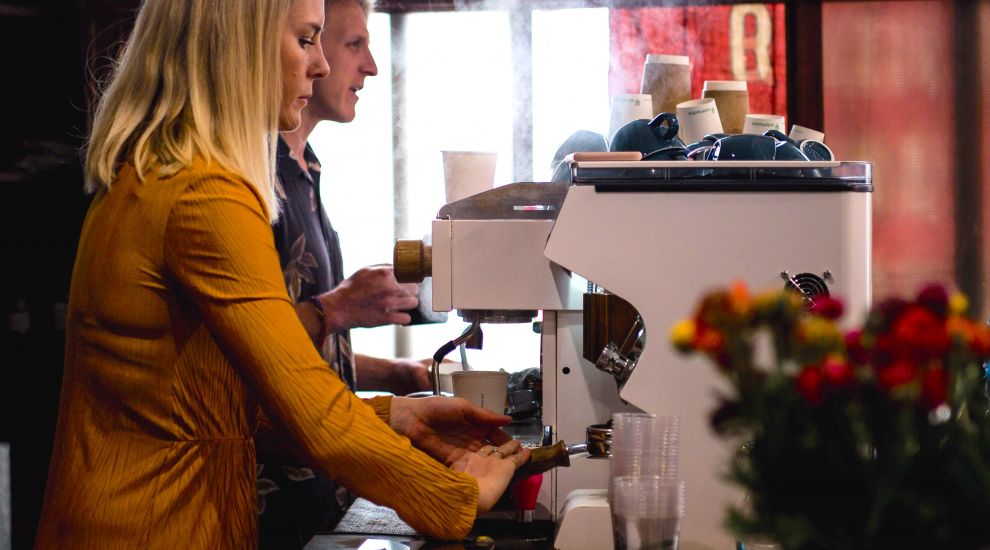
We might be an island known for finance, but a new industry is now brewing locally and starting to get a latte attention.
Despite being known for tea sipping, Brits are now consuming 95million cups of coffee annually, pushing the 'caféconomy' towards becoming a booming £10billion industry.
But rather than through known brands, this has been propelled by independent hotspots doused in Shoreditch chic, which have helped make the cuppa ‘cool’.
Jersey might have been slow on the uptake, but that trend is now hitting in the form of flavour-focused and ethics-driven enterprises that aren’t scared to take on the big boys.
Express visited three places hoping to free the island of its chains...
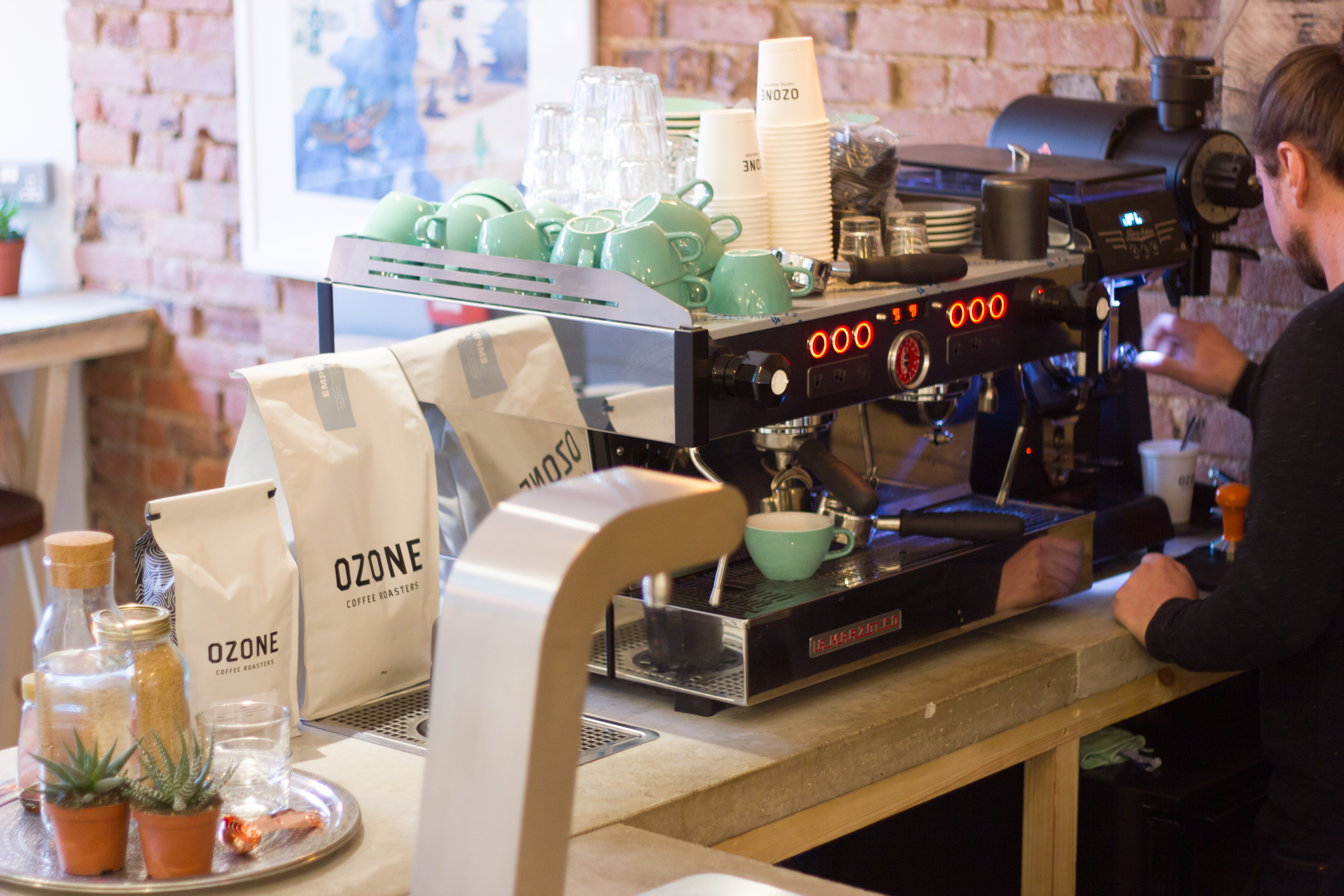
Pictured: From bars in Costa Rica to a specialty coffee bar in Jersey.
Theirs was a life lifted from the pages of a novel. Around 11 years ago, islander Liam Montgomery was travelling South America. Having visited Panama City, he crossed into Costa Rica. Firstly, he fell in love with the country’s rugged rainforests, crystal coasts and sunshine. Then he found love again, this time with Turkey-born, France-raised Selda Kumcur, who moved to the country age 17 to study sustainability development.
Amid moments of hammocks, fishing and diving, the pair earned their keep working the city’s nightspots, and went on to run two bars – something they adored for its “cool community vibe” and ability to make friends of strangers.
But the shimmer of that success was dimmed by the threat of crime, with robberies – sometimes at gunpoint – which was rife in the city, so the pair made plans to leave. “I guess it was just time,” Selda says. “…That chapter finished,” Liam adds, finishing her sentence. But today, they’re sitting inside the silver lining of that cloud: Cargo, a specialty coffee bar, with a focus on the sustainable.
Its white walls contrast against the counter’s exposed brick and pallet board background, while the space is filled with scaffolding pole shelving, and tables built with steel frames and upcycled wood found at local farms, each topped with tiny succulents.
“People come in and say, ‘This doesn’t even feel like Jersey’,” Liam says. Despite hosting views of the bus station opposite, it really doesn’t – and that’s all part of their plan to make something “unique” that gives coffee aficionados and meat-shunners – two growing and profitable demographics - genuine choice.
After four years back in Jersey in which Liam took on the ‘9 to 5’ with a job in marketing, the island’s franchise java and mushroom risotto-filled menus (often the only option for vegetarian Selda) started taking their toll. It was time to take on the café challenge once again.
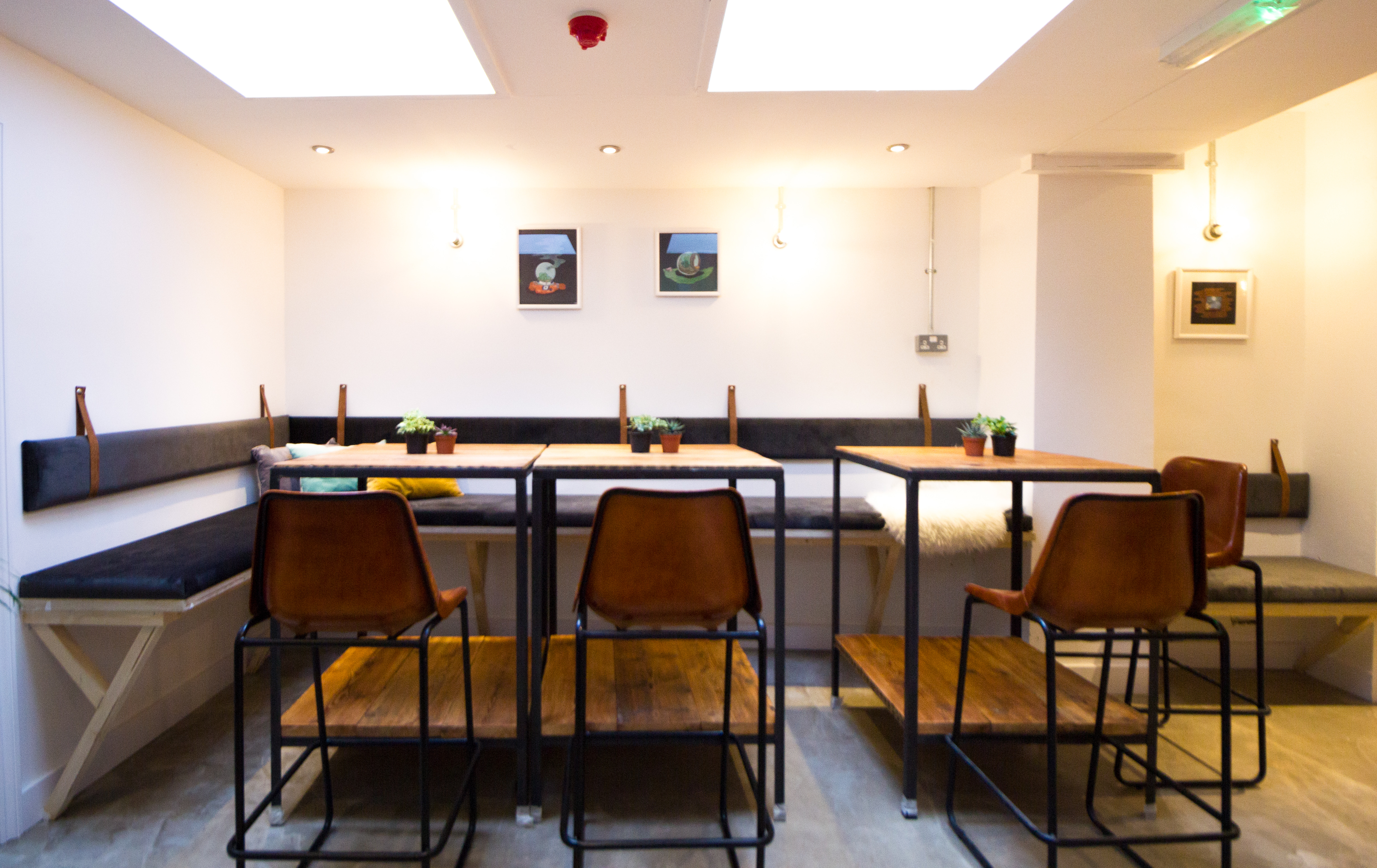
Pictured: Nearly everything in Cargo was done DIY-style.
Transforming the “derelict” space took months. But even on those days, “Selda was in a onesie painting outside”, Liam laughs, recalling how nearly everything was done DIY-style. The decision to build from scratch was part of a bid to keep costs down so that they’d have more money to splash out on show-stopping coffee, and quality grinders, but even more so based around their personal eco ethos, with which they hope to inspire others.
And there couldn’t be a better time for it, with animal-friendly and plastic-free fever sweeping the island – the latter of which is supported by 91% of Brits. All their food is sourced locally and organically, and the eggs used in everything from their breakfast wraps to huevos rancheros are free range. “They come from Hamptonne Farm, all produce comes from Just William in the market, and our bacon and pasties are from John Hackett,” Liam explains. “He loves his pigs, loves his chickens – they all roam free and have nice living conditions,” Selda adds.
The pair favour glass Tupperware and bottles (indeed, during the interview, Selda removes the label from Liam’s drink, musing how it could be repurposed) and all takeaway packaging is vegware. Iced lattes are served with stainless steel straws if drunk in-house, while ‘to-goers’ have to make do without. They’re also encouraging clients to try reusable ‘keep cups’ – but what goes inside is the real star.
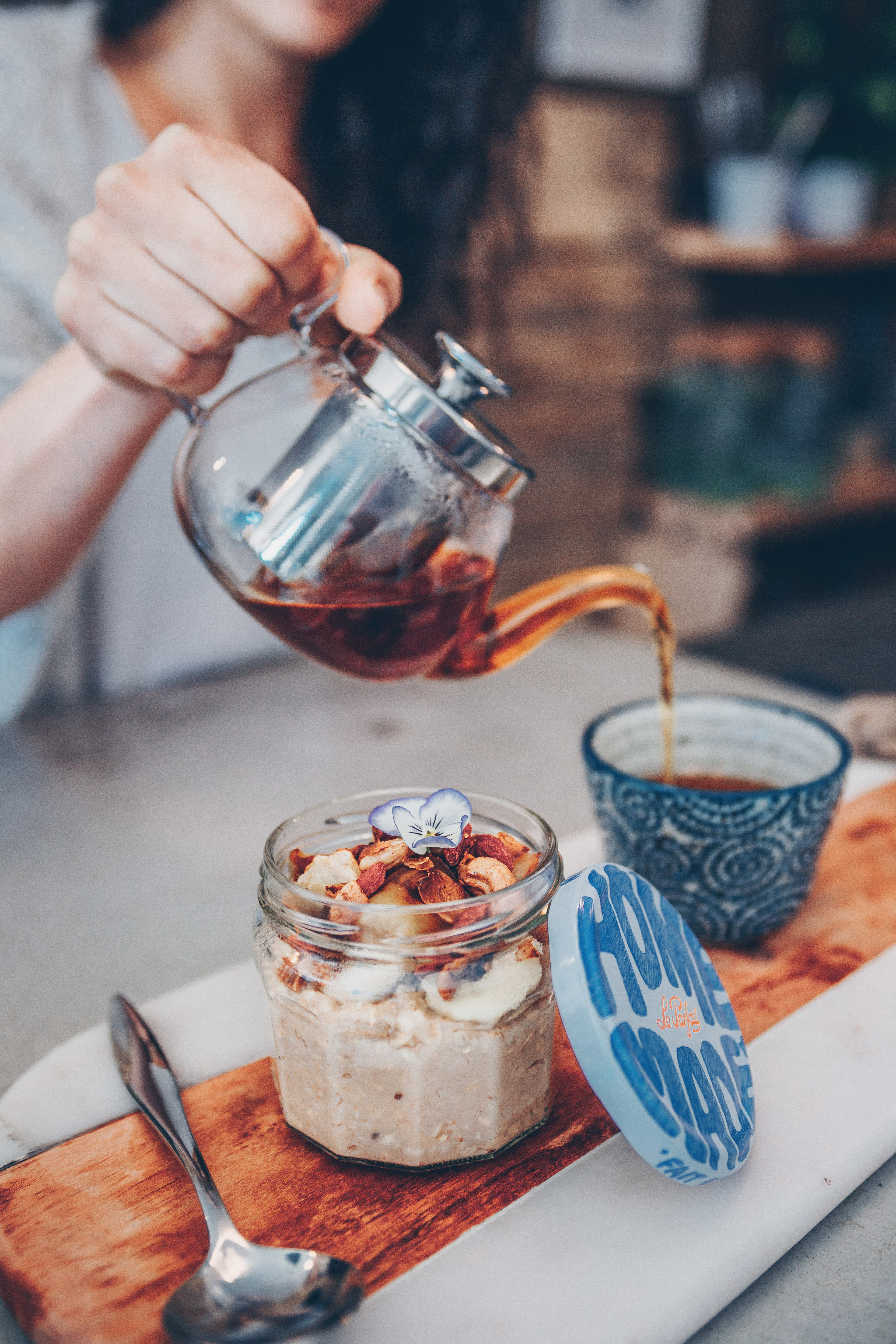
Pictured: All the food served at Cargo is sourced locally and organically. (Holly Smith)
Finding a blend to capture the imagination of an island raised on saucer-size cups of bland brand brew, as well as the discerning palates of business professionals used to sophisticated flavours from abroad, meant in-depth research from ‘coffee geek’ Liam. “On his bedside table he’s got his coffee books, and he loves YouTube videos – that’s all I sleep to,” says Selda.
They eventually settled on Empire by London-based Ozone roasters, which is a taste mix of “nougat, milk chocolate and caramel” using beans from Brazil, Guatamala, Ethiopia and Colombia. Fairtrade, of course.
The quantity they serve might be less – they use 6oz and 8oz cups, compared to the industry standard of 12oz – but all coffees contain a punch-packing double espresso shot. Despite doubling up on a premium product, their cups are little over the £2 mark – cheaper than many chains. Moreover, they’re providing “real food” at the price of a supermarket meal deal. So how are they hoping to make money? “Repeat custom… Our average meal is about £4.80, so it’s affordable. We’d rather do turnover to get people coming back,” Liam says.
It’s an alternative business plan, but the formula is working. At a stone’s throw from the new IFC, Cargo’s enjoying hearty custom from business bods, young people, daters, and has even hosted job interviews. “It’s almost a party in here at 08:00,” Liam smiles. That fiesta extends on Fridays, when Cargo transforms into a mezze, craft beer and cocktail-infused bar from 17:00 to 21:00.
Keeping the party going is tough, though. They “got lucky” in recruiting an Ormer-trained chef for their kitchen, but finding trained baristas was harder. They had to “turn away people who were perfect fits” because they weren’t entitled to work on the island. Instead, they had to train someone unqualified – “a waste of time when you want to be able to start the business."
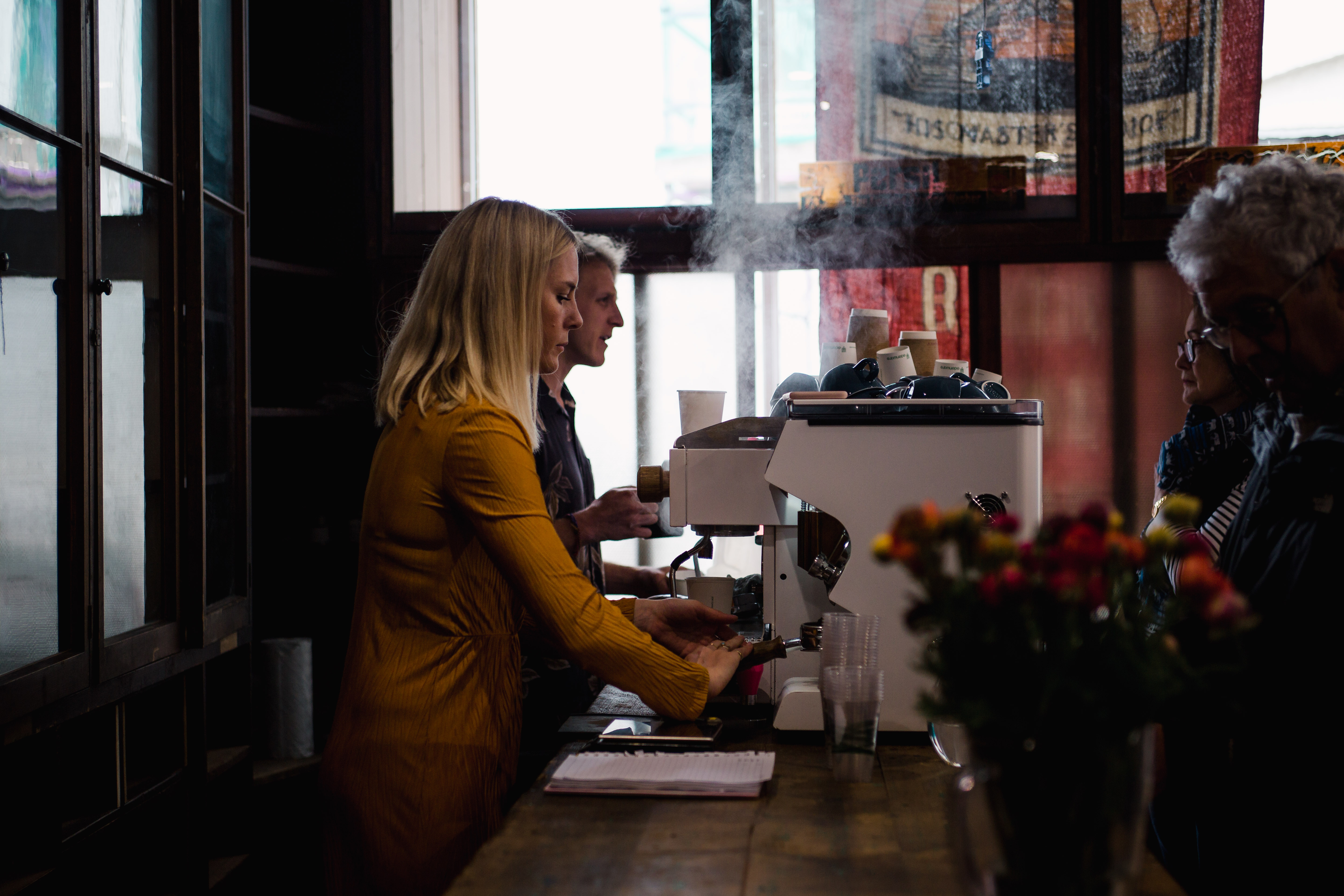
Pictured: Husband and wife Drew and Ella Locke. (Co-Op & Holly Smith)
It’s a pain felt across the hospitality industry due to increasingly few islanders turning to the sector for a career. Café-come-social enterprise Beresford Street Kitchen, which is staffed by people with learning disabilities, could provide a solution. Since opening last summer, it’s equipped dozens with new kitchen and barista skills and should, in time, provide a stepping stone to future employment elsewhere within the industry.
For now, however, the recruitment struggles continue. Husband and wife Drew and Ella Locke know them well. The former professional rugby player, and Jersey-born teacher, have been putting in 16-hour days since upgrading from Locke’s coffee cart to a full café in June. On one day in their first week, they were unable to serve food due to kitchen staff shortages.
But the public have been understanding. “Being honest with people is important… and hard work,” Drew says, citing his publican dad’s top business tip.
“Growing up in pubs” may be one of the reasons he decided to pour his “life savings and more” into setting up the café in a decaying building gifted to the National Trust for £1 by the Co-op as part of a significant heritage restoration project.
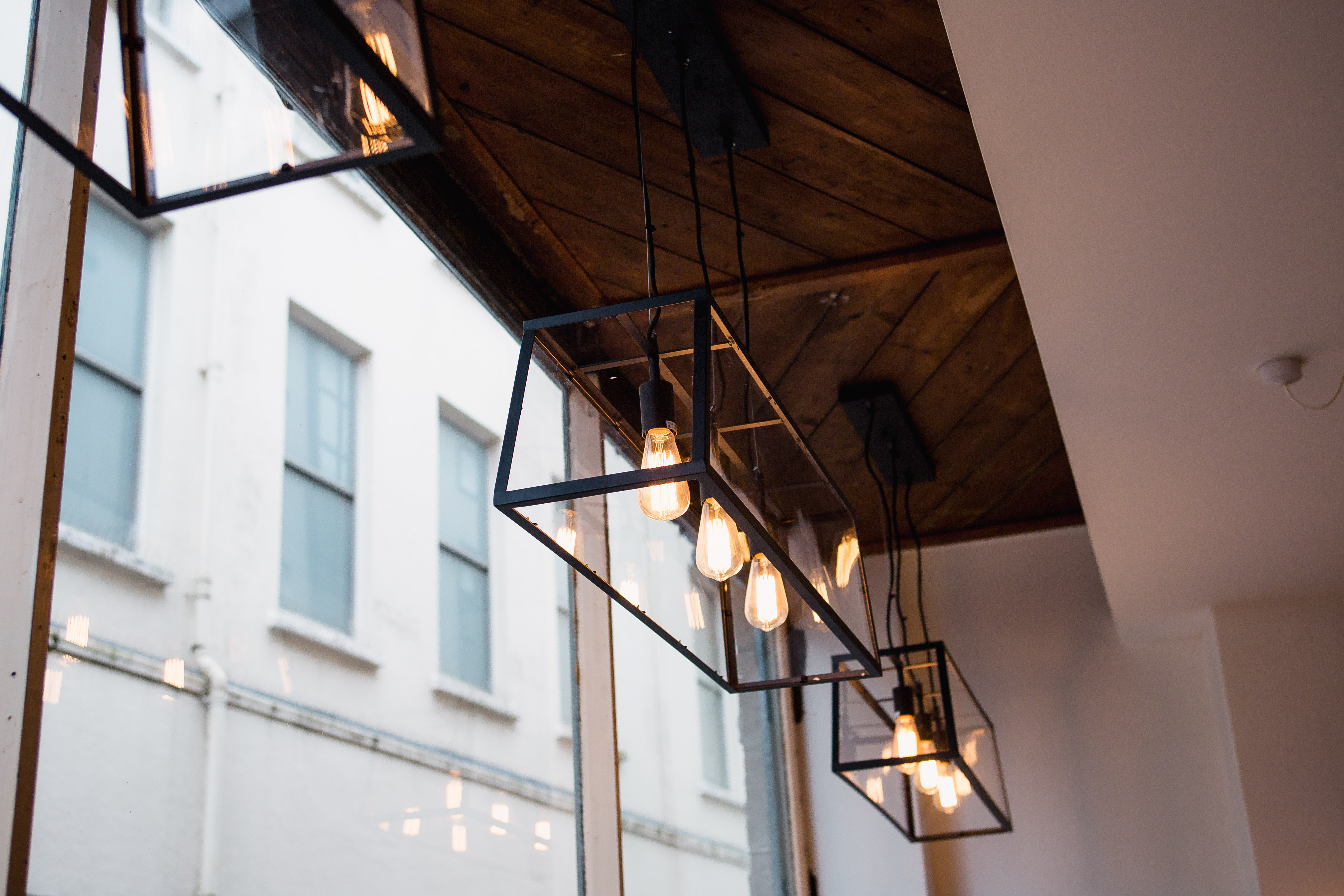
Pictured: Drew and Ella found inspiration for their café in Australia. (Co-Op & Holly Smith)
After advice from Jersey Business and a Dragon’s Den-style presentation in front of 10 National Trust members, the Lockes won a bid to breathe life into the space.
According to Drew, it was his wife’s “crazy moodboards… that really sucked [the panel] into our business plan.” Inspiration came from a six-week market research tour of Australia, “the leaders in the café world."
“We’d go into a café, take pictures of things we liked, see how big the space was, how many staff there were… It was a really worthwhile trip.”
The result was the “best bits” of Melbourne, Sydney and Brisbane – together forming a café with period features made modern with quirky artwork and draped greenery from Mark Howe florists. A not-so-subtle nod to the building’s history as 1900s music store Foot’s is splashed outside: a gargantuan ‘His Masters Voice’ dog and gramophone mural.
But looks aren’t everything: flavour must match up. Locke’s serve kick-ass “cups of caramel” made from a single origin Guatemalan roast selected out of over 20 suppliers. It flows from a premium Marzocco machine - whose price points sit around £8,000, making it one of the biggest overheads for any indie caff - and is then combined with full milk from independent dairy Classic Herd. So proud of the brew is Drew, that he refuses to serve it skinny.
Their Asia-inspired menu, meanwhile, is an artfully-presented kaleidoscope of Genuine Jersey produce. Avo on toast might be the ‘in’ thing, but for Locke’s, “it’s beetroot because it’s in season.” “We’re trying to support local growers… In the second week of July, our menu will change completely. Hopefully that will get people excited and through the door again.”
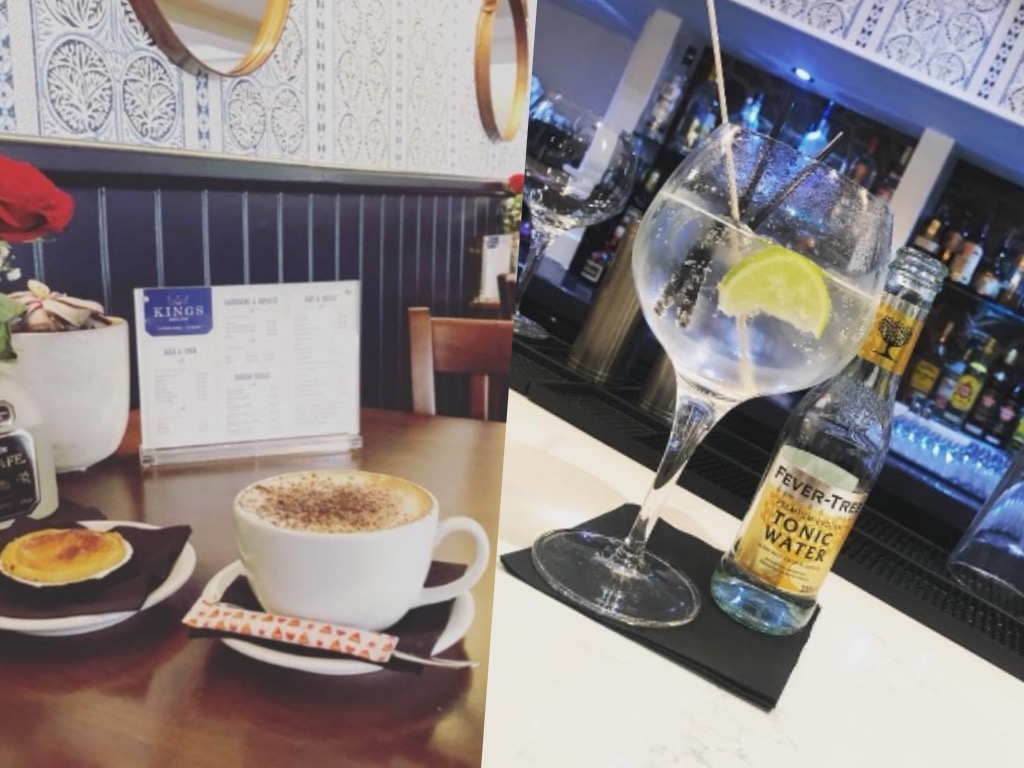
Pictured: Coffee and Gin, it's all in a day's work at Kings. (Kings)
Teamed with the low-price new Premier Inn next door, fresh cafés like Locke’s could also prove positive for tourism, helping the island access the valuable millennial market – an age group that spends £150billion globally on travel each year, and posts an outrageous amount of coffee photos on social media. We might sneer, but it’s literal mug shots and Insta-snaps of delicate plates of vibrant local produce that will tell Jersey’s story globally.
Of course, they help locally too. Instagram was a key (free!) marketing tool for ‘café by day, bar by night’ Kings. The establishment’s steady stream of photos showcasing their enviable cocktail and gin collection - ranging from best-loved Bombay to ominous artisanal treat ‘Deaths Door - has no doubt had a part to play in securing a loyal clientele within just six months. After all, a YouGov poll rated the botanical beverage as the UK’s most popular spirit in 2017, while the cocktails market is growing 10% year-on-year.
“The gin bubble isn’t going to burst anytime soon,” manager and barman Craig Singleton muses, adding that they’re always on the hunt for new things through customer recommendations, internet research and sampling sessions with suppliers, which include LoveWine, Victor Hugo and Randalls. Right now, they’re waiting on new mixers from Double Dutch.

Pictured: The Gin bubble might burst any day now but until then it will keep flowing at Kings.
Located in the ‘golden triangle’ of island nightlife, their “bread and butter” was always going to be weekends unlike fellow hybrid Cargo. But owners Nelson De Freitas and Jess Gouveia were still keen to create a space “for everyone.”
They worked hard with Craig to lovingly craft a clever night-and-day aesthetic that can – and often does – host pram-pushing parents enjoying Portuguese Delta coffees at the same time as partiers craving espresso (martinis). So, what enables the seamless transition from café to bar? As well as its blue and rose gold décor and each tables’ cheeky topping of a gin bottle vase, Craig thinks the combo of high tables at the front and comfy low seating at the back allows everyone to make the space “their own.”
“It’s a nice chilled vibe. We don’t have TVs, sports or news pumping out – it’s almost a USP for us. This is a place where you’re not a sardine, where you can hear yourself think, where you can have a catch up… If you’ll excuse the metaphor, there’s a lot of different ingredients when shaking up this cocktail.”
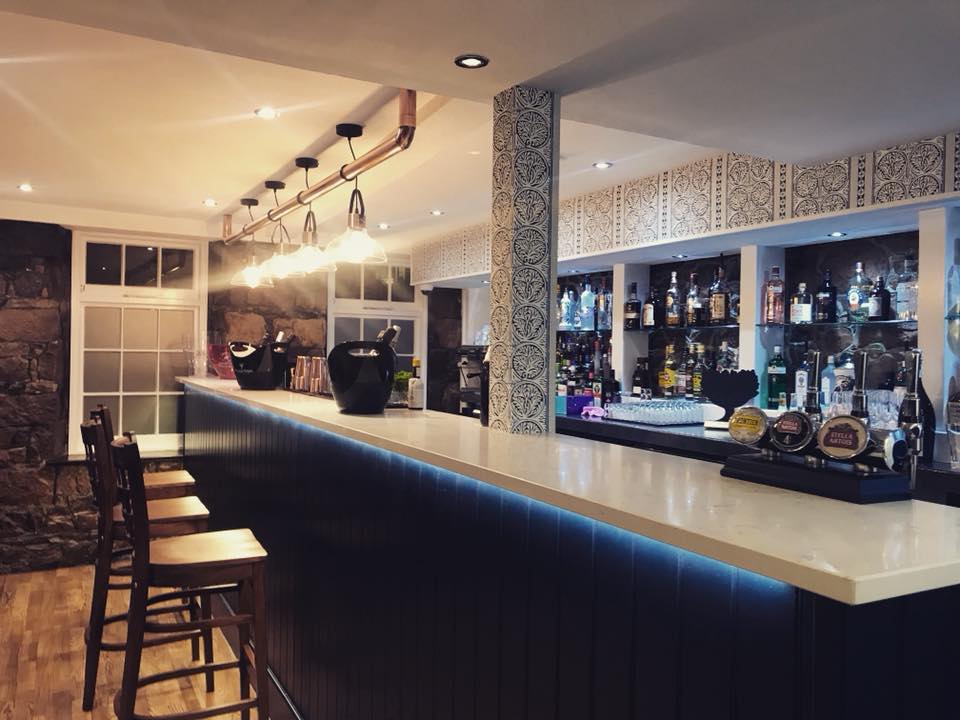
Pictured: Kings is located in the ‘golden triangle’ of island nightlife. (Kings)
Nelson says one of the biggest learning curves in setting the place up was, funnily enough, learning “where to put the machines.” It might sound mundane, but, as Craig points out, seconds wasted wandering between machines could mean long queues and lost money. The worst thing? “Bumping into each other and spilling a drink. There’s three to four people behind the bar on Fridays and Saturdays… You have to ‘dance a dance’.”
Town Centre Manager Daphne East says she’s “delighted to see these new cafés spring up” and has received “only positive feedback” about them. She wants to see even more “extend into the evening economy”, as Kings does, to continue building a “continental and lively” atmosphere in town.
With café culture bringing benefits ranging from eco-friendliness to nightlife promotion, heritage preservation, tourism and maybe even reinvigorating the fatigued hospitality industry, long may that “dance” continue.
This feature originally appeared in Connect Magazine. Enjoy it in full by clicking here.
Comments
Comments on this story express the views of the commentator only, not Bailiwick Publishing. We are unable to guarantee the accuracy of any of those comments.